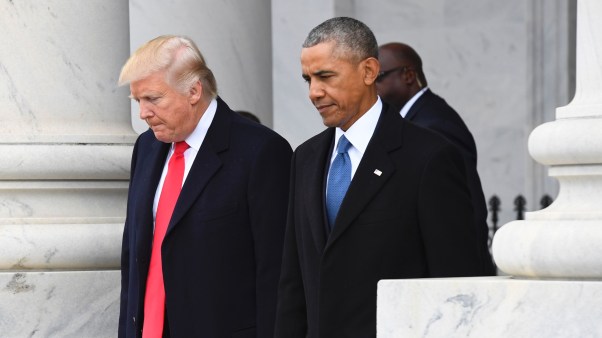When President Grant lay dying, his old friend, Gen. O. O. Howard, came to see him. Howard told his old chief, under whom he had fought through the Civil War, how much the people of the United States appreciated his work. Grant, restless and wistful, seemed unimpressed. What had impressed him, obviously, was the example of faith and prayer that Howard had long set before his fellow officers and soldiers. “Tell me,” cut in the dying commander-in-chief, “tell me something more about prayer.”
It is a piercingly appropriate request, spurred alike by humility and by hope. Always there is something more to learn about this amazing function and force by means of which, as Tennyson put it, “more things are wrought than this world dreams of.”
Prayer is responsive. At one level it may be ignorance and fear responding to mystery, littleness responding to vastness, guilt of violated taboo responding to a terror-world of spirits manipulated by medicine men and witch doctors. At a different level it may be the disciples of Jesus, awed by his own practice of prayer into a reverential aching of wonder and longing, saying wistfully, “Lord, teach us to pray”
In prayer, God is always there ahead of us. He is the prior fact. He tirelessly cultivates the prayers of his biblically enlightened people. “Call to me, and I will answer you” (Jer. 33:3).
Prayer is purgative. Christian prayer is an invited intimacy with the Father-God who is loving and holy. In his presence, the pride that is discovered is the pride that dies. The resentment that is cancerous is the resentment that is cured. The pettiness that is probed is the pettiness that is purged. Contrite and believing prayer is the soul’s immersion in the sacrificial “mind of Christ,” who on the cross made his pure soul an offering for our sin. “The blood of Jesus Christ his Son cleanseth us from all sin” (1 John 1:7).
Prayer is expansive. It is Isaiah in the temple, convicted and concerned with his own discovered need, but not resting there—going on, instead, to see with sharpened vision the needs of others near and far, and to say to God, “Send me.” It is the disciples, under the tutoring of Jesus, being told, “lift up your eyes, and see how the fields are already white for harvest” (John 4:35); “pray therefore the Lord of the harvest to send out laborers into his harvest” (Matt. 9:38).
Prayer widens the walls of the heart. It gives an interior spaciousness. “Prayer,” wrote S. D. Gordon when the twentieth century was young, “opens a whole planet to man’s activities. I can as really be touching hearts for God in faraway India or China through prayer as though I were there.… A man may go aside today, and shut his door … and as really spend a half hour of his life in India for God as though he were there in person.”
Do you doubt that? If you do, there is no mathematical calculus by which you can be convinced. Those who know the art of the heart, which is loving intercession, will not doubt it. To them prayer is not saying, “Tell you what I’ll do, God; let’s make a deal!” Prayer, on the contrary, is being caught up into the livingness of the “God and Father of our Lord Jesus Christ” and participating in his purpose of reconciliation for proud, ego-centered humans of every ilk.
If S. D. Gordon spoke his world-encircling mind to an earlier generation, George Archer Buttrick confronted our own time when he wrote, “So honest prayer is linked with life. We pray, and then speak the unpopular word.… We pray, and then we both vote and labor against politicians who play both ends against the middle, and thus sidestep the demands of a revolutionary time.… Yet prayer is not committed to any ism, for all isms are transient and open to human sin.… Our activisms are both blind and compulsive without prayer.”
Prayer, then, is mission. It is not an adjunct to mission. It belongs. It is an integral part of it. It brings the world within our ken. It lays the world upon our heart. It broadens our sympathies and empathies into a vital participation in the whole community of Christ’s witnessing servants.
“Howard,” said General Grant, “tell me something more about prayer!”
1 Paul S. Rees has been a pastor and evangelist, and is the author of 14 books. He has served on the boards of several magazines and institutions, including ChristianityToday, Bread for the World, Eternity, and World Vision International










